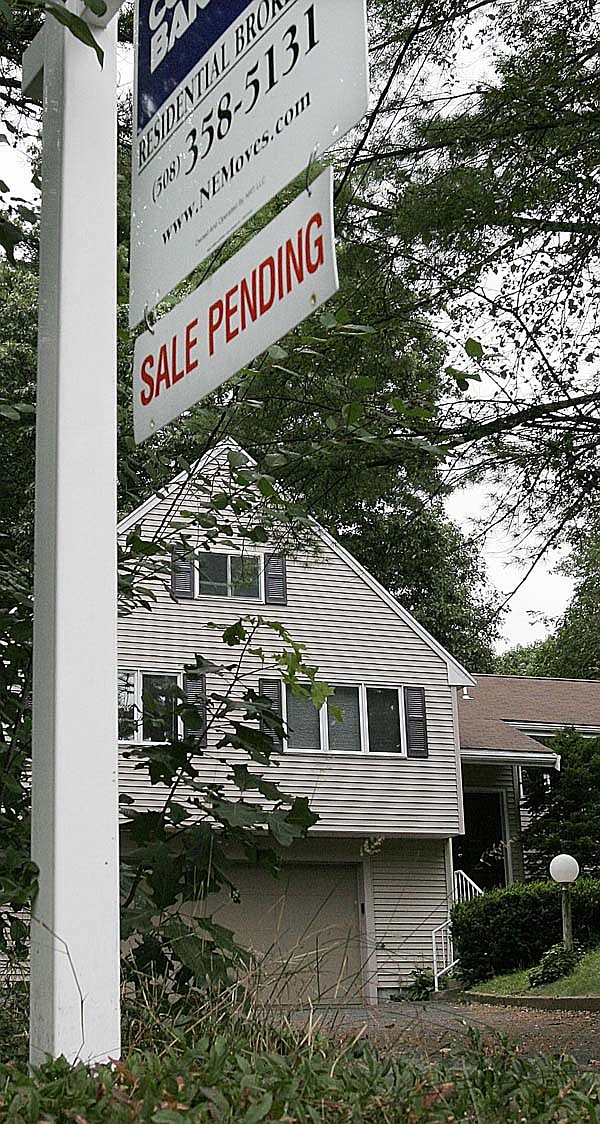LITTLE ROCK — U.S. home prices rose 0.3 percent in July from the previous month, according to a government index.
The house price index fell 4.2 percent for the 12 months that ended in July, the smallest decline this year, the Federal Housing Finance Agency in Washington said Tuesday.
The monthly gain was lower than the 0.5 percent increase forecast by 12 analysts in a Bloomberg survey.
"The general economic recovery is weak for one reason: Because the housing recovery is weak," said David Crowe, chief economist of the National Association of Home Builders in Washington.
The U.S. housing market is struggling to stabilize after a three-year slump slashed values 28 percent and led to record foreclosures. While a federal tax credit for first-time buyers and lower prices are bolstering demand, the unemployment rate at a 26-year high has kept many buyers out of the market.
Employers have eliminated almost 7 million jobs since the recession started, the biggest drop of any post-World War II economic downturn. U.S. President Barack Obama and Federal Reserve Chairman Ben S. Bernanke are considering whether to end support for a housing market that has been the source of the global financial crisis.
Treasury Secretary Timothy Geithner on Sept. 17 called signs of stabilization in the housing market "very encouraging" and said the Obama administration is studying whether to let the tax credit expire at the end of November.
"If we start to see a major fall back in housing, they're going to have to bring back more federal support," said Brian Bethune, chief financial economist of IHS Global Insight, a forecasting company in Lexington, Mass.
Eight out of nine areas saw prices decline from a year earlier, the Federal Housing Finance Agency said. The biggest drop was 9.8 percent in the region that includes Nevada and Arizona. California and other Pacific coast states declined 9 percent, and the area that includes Florida was down 5.6 percent, according to the report.
Five out of nine U.S. regions had price increases July from June, led by a 1.6 percent gain in the area that includes California, the agency said. New York, New Jersey and Pennsylvania had the second-largest advance with a 1 percent increase.
Home-building companies are seeing some signs that demand is improving. Lennar Corp., the third-largest U.S. builder, said Monday that it has started buying finished home sites in anticipation that buyers will return.
The Standard & Poor's Supercomposite Homebuilding Index of 12 companies has rallied 38 percent this year through Monday on the prospect of a recovering market.
U.S. home prices probably will fall 13 percent this year, larger than the 9.5 percent decline in 2008, according to a National Association of Realtors' forecast. Home resales probably will rise 1.1 percent to 4.97 million after a 13 percent drop last year, the group said.
The U.S. median home price tumbled 28 percent over three years to $164,800 in January, the month before Congress passed the American Recovery and Reinvestment Act of 2009 granting the tax credit for first-time buyers, according the National Association of Realtors. It had reached a record high of $230,300 in July 2006.January's median home price was the lowest in more than seven years.
In Arkansas, the average sales price of previously owned and new houses in July was $153,047, 2.6 percentlower than in July 2008, according to the Arkansas Realtors Association.
Lawrence Yun, chief economist of the Realtors' group, estimates that about 350,000 home sales through August were directly attributable to the tax credit. First-time buyers have accounted for 43 percent of home sales since the credit became law, up from 32 percent in the six weeks before its passage, according to Washington-based Campbell Communications Inc.
"We're a bit distrustful of the stabilization in home prices given the large inventory of unsold, unoccupied units hanging around," wrote economists for Goldman Sachs.The tax-credit for first-time home buyers and the residual effects of the moratorium on foreclosures earlier could be propping prices up, they said.
Information for this article was contributed by Rex Nutting of Market-Watch.
Business, Pages 27, 28 on 09/23/2009

